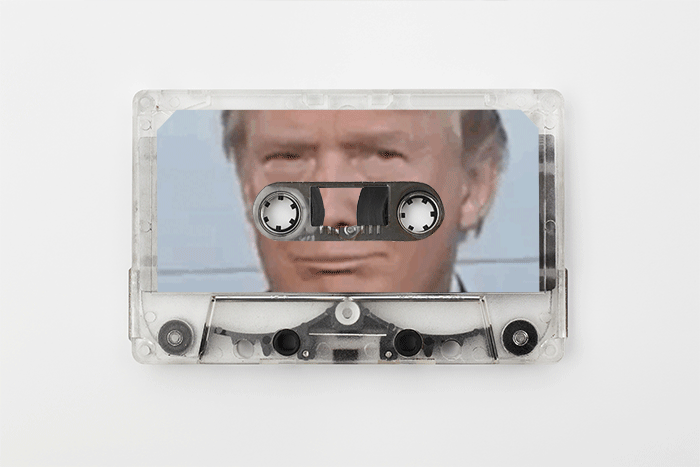#TrumpTapes Cause Major Spike in Calls to Sexual Assault Hotline, Sharing of Survivor Stories

The #TrumpTapes are having a real impact on survivors of sexual assault.
After the leak of the 2005 Access Hollywood tape on Friday afternoon, in which Republican presidential nominee Donald Trump is heard describing sexual assaults that he has since passed off as “locker-room banter,” RAINN (the Rape, Abuse, and Incest National Network) reported an increase of 33 percent in calls to the National Sexual Assault Hotline over the weekend.
The number of calls to the hotline have only continued to increase, as the media continues to cover the fallout from the tapes, and as more and more people publicly condemn the kinds of comments exchanged by Trump and by Billy Bush, who was co-host Access Hollywood at the time.

Scott Berkowitz, the president and founder of RAINN, tells Yahoo Beauty that on Tuesday alone, Hotline usage had risen 42 percent over its normal volume.
“And a lot of people on the hotline are actually referencing Trump,” Berkowitz says. “And saying that those comments are what prompted to them to reach out.”
‘P***ies In Formation’: Women Form Human Wall Blocking Exits of Trump Tour
Berkowitz says that such spikes in Hotline usage frequently occur after intensive media coverage of high-profile sexual assault cases, such as those of Bill Cosby or Stanford University’s Brock Turner.
Just last night, author and blogger Kelly Oxford formally announced the hashtag #notokay as a means to help survivors of sexual violence continue to tell their stories.
I made the hashtag #notokay for everyone. This is bigger than a political campaign. Anyone making #notokay political is not affiliated to me
— kelly oxford (@kellyoxford) October 12, 2016
After the initial reporting on the Access Hollywood tape released by the Washington Post on Friday, Oxford took to Twitter asking women to tweet stories of their first sexual assault.
Women: tweet me your first assaults. they aren't just stats. I'll go first:
Old man on city bus grabs my "pussy" and smiles at me, I'm 12.
— kelly oxford (@kellyoxford) October 7, 2016
By Saturday, over a million women had responded, at a rate of 50 tweets per minute, Oxford said.
women have tweeted me sexual assault stories for 14 hours straight. Minimum 50 per minute. harrowing. do not ignore. #notokay
— kelly oxford (@kellyoxford) October 8, 2016
According to the Justice Department, 1 in every 6 women and 1 in every 33 men will experience sexual violence at some point in their lives. These numbers are probably even higher, considering the number of people who experience sexual violence but never disclose it. One silver lining of the Trump tape is that the strong reactions to it have been encouraging more survivors to speak out.
Before the second presidential debate on Sunday night, Oxford tweeted:
#notokay thank you for sharing stories of sexual assault and to those still sharing. We don't have to carry their shame anymore.
— kelly oxford (@kellyoxford) October 9, 2016
She is, of course, correct: The shame of sexual violence should fall solely on the perpetrator.
It is important to note, in light of the attention around Trump’s comments describing sexual assault, is that 3 out of 4 rapes are committed by someone known to the victim: 43 percent by a friend or acquaintance, 27 percent by a current or former romantic partner, and another 2 percent by a relative who is not a spouse. Furthermore, 50 percent of perpetrators are age 30 and older — in sharp contrast to the commonly held belief about sexual violence that “Boys will be boys.” (Trump himself was 59 years old and Bush 35 years old at the time of the Access Hollywood recording.) And 57 percent of all perpetrators of sexual assault are white.
No matter who is committing such crimes, no victim, ever, in any way, “allows” for such violence to occur. As advocates for survivors of sexual assault insist, nothing causes rape but rapists.
“I think we’ve been seeing an evolution of the way survivors talk about what happens to them and the number of survivors who are more willing to speak about it publicly,” Berkowitz says. “And what we’re seeing now, I think that’s being fed up with the election and the Trump [tape and coverage] last week. There are always different effects on different survivors, but some of the comments we are seeing now — some survivors are so offended at what seems like the marginalizing or trivializing of what they experienced [as shown in the Access Hollywood tape and the Trump campaign’s response] that they feel a desire to speak out. Other, I think, feel more empowered because there are so many other survivors now speaking out. There is power in numbers.”
He adds, “I think there’s a perception that the public is so much more understanding [of survivors of sexual assault] than it used to be. The public reaction to Trump’s comments has overwhelmingly been condemnation — and survivors see this and are given the confidence to know that if they talk about what happened to themselves, it will be well received.
“No matter which way Congress goes in this election, there is going to be a lot of support for legislation to help survivors and improve the justice system’s handling of rape,” Berkowitz says. “I think that we’ve seen so many Republicans and Democrats condemning the remarks that this support will only continue.”
If you or someone you know has experienced sexual assault, know that you are not alone and what happened was #notokay. You can find support anytime, 24/7 at 800.656.HOPE, online.rainn.org or (rainn.org/es en español).
More: Latest Trump Leak: When He Criticized an “Apprentice” Contestant’s Skin
Let’s keep in touch! Follow Yahoo Beauty on Facebook, Twitter, Instagram, and Pinterest.

